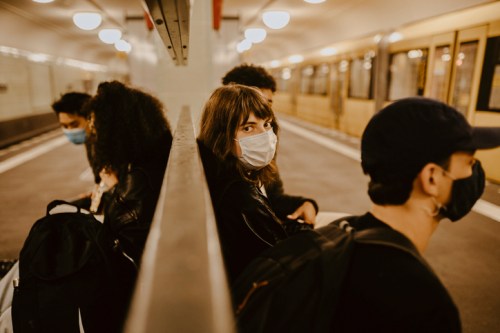10 People Share the COVID-19 Habits and Insights They Hope Will Last
It's been more than 2 years since the pandemic began. Here are some pandemic insights people don't want to forget.

It’s been over two years since COVID-19 spread rapidly across the globe. The pandemic resulted in grief, transition, and deep reflection. For some of us, it’s hard to believe such a significant amount of time has passed, and for others, it’s dragged along at a painfully slow pace.
During the first 90 days of the pandemic, many of us experienced unprecedented time at home, with families, away from the office, or on the frontlines as essential workers. The upheaval (and the downtime) spurred considerable reflection. What did we discover? What promises were made? And how have those commitments held up over time?
The United States recently surpassed a grim death toll of 1 million people lost to the virus, and new variants, like Omicron BA.2, have caused cyclical surges every few months. Those first few months of the pandemic feel so far away, and it seems like there is no resolution in sight. So we asked people to share insights about what the pandemic has taught them. You’ll find their reflections below.
1. Public health infrastructure is the most critical resource
“I don’t think I ever truly understood how important government funding and public health infrastructure truly are for the health and safety of the public. It’s about making sure people can afford masks, tests, get their shots, and get the right information.” — Sarah, 32
2. Alone time is non-negotiable
“Before the pandemic, I would be going out every night. I would do one, two, or three different things in a night. Now I stay home a lot, and I feel way more recharged and at peace with who I am and what I want. I obviously think the pandemic is horrible, but the lesson about recharge time I learned is super valuable” — Drew, 27
3. Universal income would benefit people so much
“When I got the pandemic unemployment assistance (and the people around me did as well), it was one of the first times I saw friends in the service industry actually relax and engage in community and socialize. People had extra money to spend, so they shared it with each other on food. We spent a lot of time together. Masked afternoon picnics in parks are some of my fondest memories, even though the circumstances were also awful.” — Leena, 31
4. People need to be educated about disability rights
“Throughout this pandemic, disabled people have been sounding alarms and begging people to listen. When abled people realized they were in danger, they started to heed our advice. But only until they didn’t need to—then we were left behind again. I will never heal from that lack of inclusion. I also hope that people take more interest in disability education and rights because long covid is disabling a lot of people.” — Madeline, 27
5. The government should do more
“I used to be someone that did really value patriotism and felt proud to be an American. The pandemic has caused me to question these beliefs. I just can’t believe the numbers. One million. One million people are gone. I just don’t understand the priorities of the American government,” — Kent, 51,
6. Community is the answer
“I had never heard the phrase ‘mutual aid’ until the pandemic began. I started to volunteer and deliver groceries to neighbors. I realized I wasn’t paying attention to my community, and the pandemic taught me that I should slow down and see people around me as part of my world.” — Shraya, 25
7. Everything can change in an instant
“I think about the plans that I had before the pandemic, and a lot of those just don’t make any sense anymore. I don’t feel like I need to travel, and I don’t really care about the social aspirations I had before. I know what is really important to me, and I hold on to that because I know that everything can change in an instant.” — Vera, 31
8. Busyness is not a badge of honor
“I used to think that being tired and spent, running around every which way, meant that I was living my life to the fullest and truly doing what I wanted. Now I know that tiredness is not something to be proud of. COVID-19 can harm you more if you don’t rest, so I take rest and relaxation seriously.” — Imani, 24
9. Normalcy may not return
“Families of small children are still waiting, more so than others, for some semblance of normalcy. It’s so frustrating for me when people say that I am afraid or too paranoid. I am not too paranoid for not risking my child’s life. However, I grieve the childhood I wanted her to have, and I worry about the effects of the one she’s gotten thus far.” — Rachel, 34
10. Quality time teaches you new things about the people you love
“I had to quit my job to stay home and take care of my kids so that my wife could continue working. I don’t regret it, and I’ve learned a lot about who my children are as people. The thoughts they share and the way we spend our days is precious to me. Though I am so sad about the world that they are growing up in.” — Adam, 38
Oh hi! You look like someone who loves free workouts, discounts for cutting-edge wellness brands, and exclusive Well+Good content. Sign up for Well+, our online community of wellness insiders, and unlock your rewards instantly.
Sign Up for Our Daily Newsletter
Get all the latest in wellness, trends, food, fitness, beauty, and more delivered right to your inbox.
Got it, you've been added to our email list.










